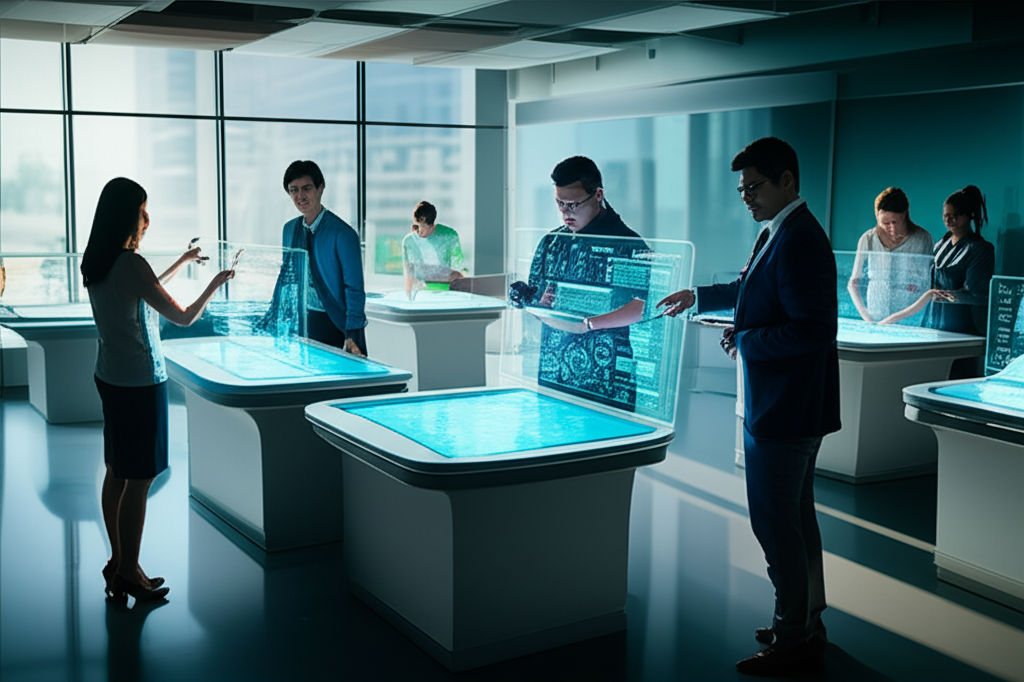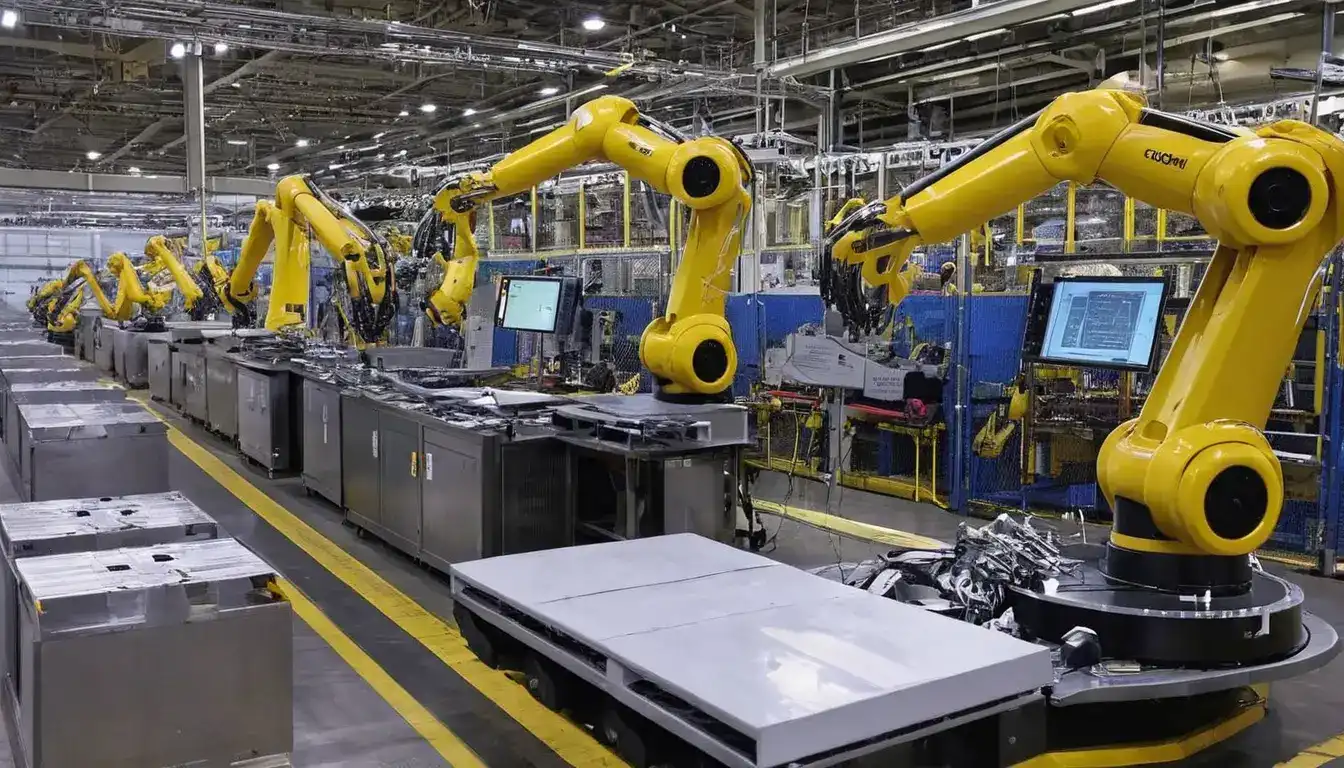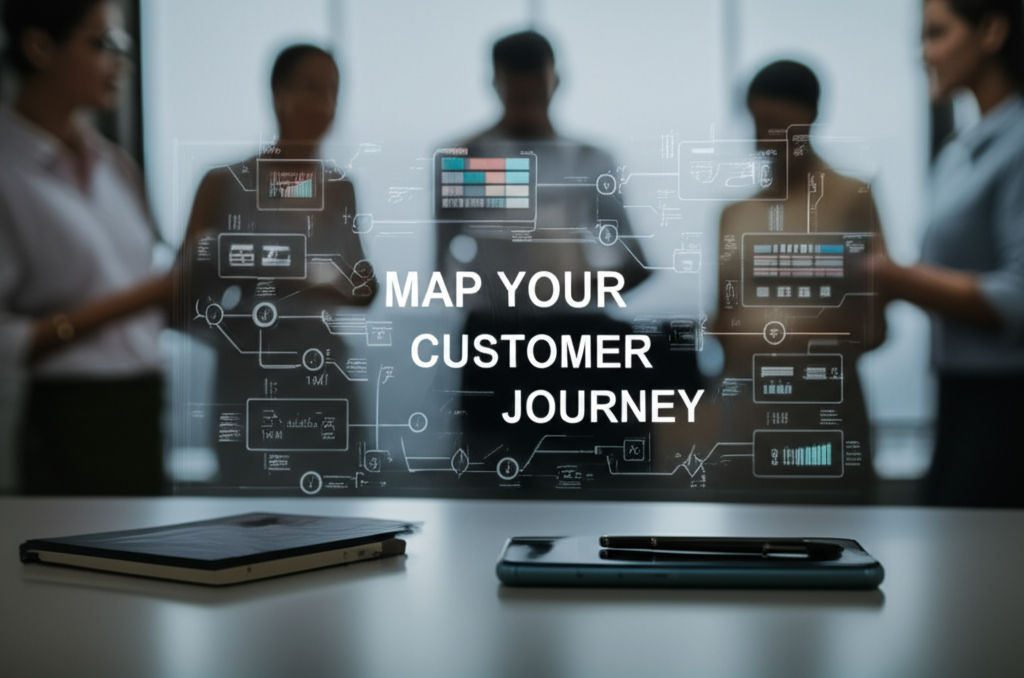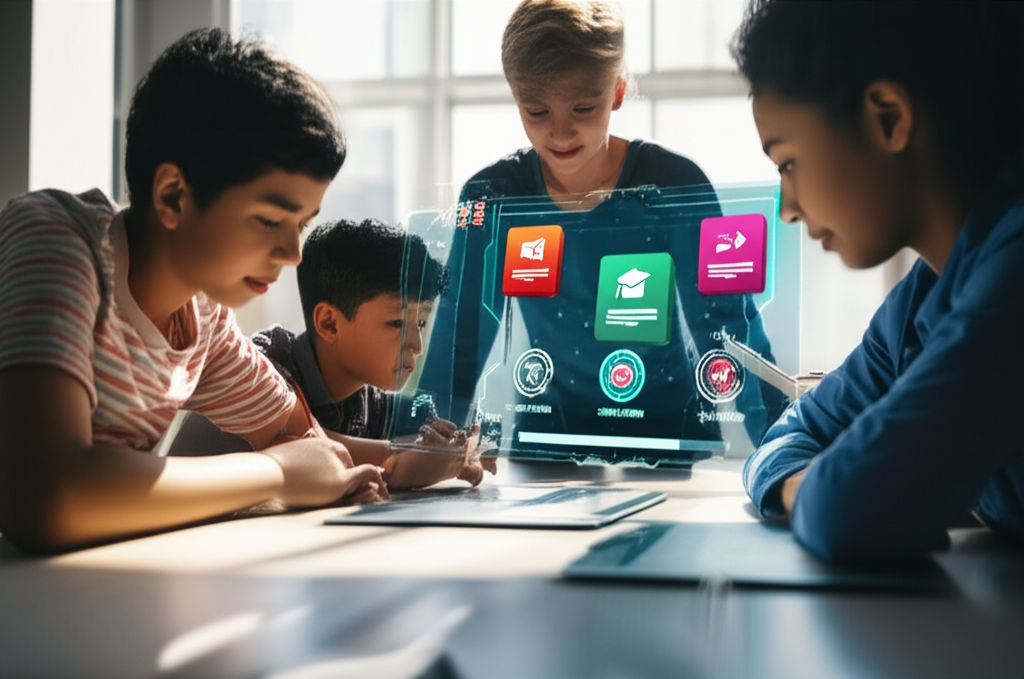Future-Proofing Ed: Prepare for Disruption
Emily Willis

Photo: Future-Proofing Ed: Prepare for Disruption
The world is changing at an incredible pace, and nowhere is this more evident than in education. What our parents learned, and how they learned it, might seem like a distant memory compared to the dynamic landscape of today. We're not just talking about new gadgets in the classroom; we're talking about a fundamental shift in what, why, and how we learn. This journey into future-proofing education isn't about predicting every twist and turn, but rather about preparing ourselves, our children, and our institutions to thrive amidst constant disruption in education.
Think about it: the jobs of tomorrow might not even exist today. Automation and artificial intelligence (AI) are reshaping industries, making many repetitive tasks obsolete while creating new demands for uniquely human skills. This means that simply memorizing facts is no longer enough. Our goal should be to cultivate adaptable, critical thinkers who can navigate a complex and ever-evolving society.
So, how do we equip ourselves and the next generation for an uncertain, yet exciting, future? Let's dive in.
Why is Education Facing Disruption?
The concept of "disruption" in education isn't about chaos; it's about innovative approaches that challenge traditional methods and create new opportunities. Several powerful forces are driving this transformation:
- Rapid Technological Advancements: From AI and virtual reality (VR) to online learning platforms, technology is fundamentally changing how we access information, interact, and learn. AI, for instance, can personalize learning experiences, offer intelligent tutoring, and even automate grading, freeing up educators for more impactful work.
- The Evolving Job Market: The skills needed for success are shifting. A 2018 McKinsey report projected a significant increase in demand for advanced technological skills, as well as social, emotional, and higher cognitive skills by 2030. Employers are increasingly prioritizing skills over traditional degrees, with many valuing work ethic, teamwork, problem-solving, and communication.
- Global Challenges and Societal Shifts: From climate change to global pandemics, the world is interconnected and constantly presenting new challenges. Education needs to prepare individuals to address these complex issues, fostering resilience, agility, and adaptability.
- Demand for Personalized Learning: The "one-size-fits-all" model of education is becoming less effective. Learners today expect experiences tailored to their individual needs, pace, and interests.
What Does "Future-Proofing Education" Truly Mean?
Future-proofing education isn't just about integrating the latest tech; it's about building a robust and flexible system that can withstand unforeseen changes and empower individuals for continuous growth. It involves a shift in mindset, moving beyond rote memorization to fostering a deeper understanding and application of knowledge.
It means:
- Focusing on Skills, Not Just Knowledge: While foundational knowledge remains important, the emphasis is shifting to the "how" – how to think, how to learn, how to adapt.
- Embracing Lifelong Learning: Education is no longer a destination but a continuous journey. The ability to learn, unlearn, and relearn is crucial for staying relevant in a fast-changing world.
- Cultivating Adaptability: Being able to adjust to new situations, technologies, and challenges is paramount.
- Prioritizing Human-Centric Skills: As automation handles routine tasks, skills like creativity, critical thinking, collaboration, and emotional intelligence become even more valuable.
Key Pillars of Future-Proofing Education
To effectively prepare for disruption in education, we need to focus on several key areas:
1. Nurturing Future-Ready Skills
The traditional curriculum often focuses on academic subjects, but the future demands a broader skill set. We need to actively cultivate:
- Critical Thinking and Problem-Solving: In an age of abundant information, the ability to analyze, evaluate, and solve complex problems is invaluable. Encouraging students to ask "why" and "how" instead of just "what" fosters deeper engagement and problem-solving abilities.
- Creativity and Innovation: The future workforce will demand individuals who can generate new ideas and solutions. Activities promoting creative thinking, such as arts, music, and project-based learning, are crucial.
- Collaboration and Communication: Working effectively in teams and articulating ideas clearly are vital in an interconnected world. Project-based learning (PBL) is an excellent way to develop these skills.
- Digital Literacy and Citizenship: Understanding technology, discerning truth from fiction online, and using digital tools responsibly are fundamental.
- Adaptability and Resilience: The capacity to navigate uncertainty, embrace change, and bounce back from setbacks is essential for personal and professional success.
- Emotional Intelligence (EQ): As automation takes over routine tasks, human-centric skills like empathy, self-regulation, and social awareness become critical.
2. Embracing Personalized and Adaptive Learning
Imagine a learning experience tailored just for you – your pace, your style, your interests. This is the promise of personalized and adaptive learning.
- How it Works: Adaptive learning systems use data and AI to assess a student's strengths, weaknesses, and learning patterns. They then adjust content, difficulty, and feedback in real-time, providing a "just right" learning experience.
- Benefits: This approach can significantly enhance engagement, improve retention, and allow students to progress at their own pace. It also provides valuable insights for educators, allowing them to offer more targeted support.
- Examples: Platforms like Open edX, Coursera, Knewton, and DreamBox are utilizing AI to create individualized learning paths.
3. Leveraging Technology Wisely
Technology isn't just a tool; it's a transformative force in education. However, its integration must be purposeful and strategic.
- Beyond Content Delivery: While online platforms offer accessibility, technology's true power lies in creating interactive and engaging learning environments.
- Immersive Experiences: Virtual and augmented reality (VR/AR) can create simulated real-world environments, enhancing conceptual understanding.
- Data-Driven Insights: Data analytics can track student progress, identify learning gaps, and refine curriculum design, leading to more effective instruction.
- AI as a Partner: AI can automate administrative tasks for teachers, provide intelligent tutoring, and even assist with content creation, allowing educators to focus on higher-level mentoring and facilitation.
4. Fostering Lifelong Learning
The idea that learning ends after formal schooling is outdated. Lifelong learning is the continuous, self-motivated pursuit of knowledge and skills throughout life, for both personal and professional growth.
- Why it's Crucial: In a world where skills evolve rapidly, continuous learning is a necessity for job security and career advancement. It also enhances personal fulfillment, cognitive health, and networking opportunities.
- How to Embrace It: This can involve formal courses, online resources, workshops, or simply cultivating a curious mindset and learning from everyday experiences. Micro-credentials, such as badges and certificates, offer flexible ways to demonstrate new skills.
5. Rethinking the Role of Educators
The role of teachers is evolving from traditional instructors to "learning architects," facilitators, and mentors.
- Designing Experiences: Educators are increasingly designing learning experiences that are relevant, affirming, and challenging, starting with the learner's needs and passions.
- Guiding Ethical AI Use: Teachers will guide students in the ethical and effective use of powerful AI tools.
- Nurturing Human Skills: They will focus on developing uniquely human skills like problem-solving, ethical reasoning, empathy, and collaborative ideation, areas where AI currently falters.
- Continuous Professional Development: For educators to lead this transformation, ongoing training and professional development are essential.
Practical Steps for Future-Proofing Your Learning Journey
Whether you're a student, a parent, or simply an individual looking to stay relevant, here are some actionable steps:
- Embrace a Growth Mindset: Believe that your intelligence and abilities can be developed through effort and good strategies. View challenges as opportunities to grow.
- Prioritize Skill Development: Focus on developing critical thinking, creativity, communication, collaboration, and digital literacy. Seek out courses or projects that emphasize these future-ready skills.
- Become a Lifelong Learner: Actively seek out new knowledge and skills. Utilize online platforms, read widely, and engage in discussions. Remember, learning doesn't stop when school does.
- Leverage Technology Thoughtfully: Use educational apps, online courses, and digital tools to enhance your learning, but also balance screen time with offline activities.
Latest ✨
View AllEdge computing is a distributed computing model that processes data closer to its source, reducing latency, saving bandwidth, and enhancing security. It is transforming industries such as manufacturing, healthcare, retail, transportation, and energy by enabling real-time data processing and improving operational efficiency.
Emily Willis
Demystify customer journey mapping! Learn to visualize customer paths, uncover pain points, and create superior experiences for sustainable business growth.
Emily Willis
Unlock historical wisdom and ancient philosophies for preventing depression. Learn timeless strategies for resilience and emotional balance in modern life.
Emily Willis
Unlock the power of The Educator's Handbook! This essential guide provides policies, tools & best practices to empower teachers & enhance student success.
Emily Willis
Business
View All
August 5, 2024
Tips to Improve Your Work Productivityproductivity in the workplace and provides a comprehensive guide to enhancing productivity. It covers topics such as understanding productivity styles, creating a productive workspace, time management, overcoming distractions, enhancing motivation and energy levels, effective task management, collaborating and delegating tasks, utilizing technology for productivity, and maintaining work-life balance.
Emily Willis

June 8, 2025
Content Marketing Drives TrafficUnlock digital growth! Learn how content marketing drives website traffic, builds trust, and attracts your ideal audience.
Emily Willis

August 5, 2024
Financial Planning Strategies for a Healthy Businessfinancial planning for the success of any business. It discusses key strategies such as creating a budget, managing cash flow, forecasting, managing debt, maximizing profitability, risk management, and utilizing technology.
Emily Willis
Economy
View AllTired of Basic Economy's hidden fees & restrictions? Discover how to get a more comfortable, predictable, and enjoyable flight experience.
Read MoreWhy aren't we purely rational? Explore behavioral economics to understand the psychological forces, biases, and emotions that predictably guide your daily decis...
Read MoreDiscover Double Premium Comfort: a synergistic blend of high-end elements for unparalleled relaxation & well-being. Redefine true comfort.
Read MoreEntertainment
View All
August 5, 2024
Fandom's Power: Passionate Communities and Cultural ImpactFandoms are dedicated groups of fans who come together around a shared love for a book series, movie franchise, or other interest. They provide a sense of belonging and community for individuals, particularly those who may feel like outsiders in their everyday lives.
Emily Willis

August 4, 2024
Exploring Virtual Reality (VR) in Entertainment: Future Applications and DevelopmentsVirtual Reality (VR) technology is revolutionizing the entertainment industry by providing immersive and interactive experiences that transform audience interaction with content. VR creates simulated environments that allow users to engage with virtual worlds, characters, and narratives in ways that traditional media cannot.
Emily Willis

July 4, 2025
EVO Cary ThrillsDiscover EVO Cary: Your ultimate entertainment hub in NC! Enjoy luxury movies, bowling, arcade games & more for unforgettable fun.
Emily Willis
Health
View AllPrincess Kate's health journey revealed: From surgery to a shocking cancer diagnosis & ongoing recovery. Get the full, respectful update here.
Emily Willis
Breaking the silence: This article explores men's mental health, societal pressures, and unique challenges. Discover steps to foster mental wellness.
Emily Willis
sleep for physical and mental well-being, discussing the benefits of sleep such as physical restoration, brain function, emotional regulation, concentration, and reduced risk of chronic diseases. It explains the different stages of the sleep cycle and provides guidelines for how much sleep individuals of different ages need.
Emily Willis
Trending 🔥
View All
1
2
3
4
5
6
7
8
9
Lifestyle



Sports
View AllAugust 4, 2024
Benefits of Cross Training for Athletes: Improves Performance and Prevents Injuries
Read MoreTechnology
View All
August 5, 2024
Top 10 Steam Games of 2024
Discover the 10 best Steam games of 2024 and embark on an unforgettable adventure. From breathtaking open-world epics to thrilling FPS battles, these must-play games will keep you entertained for hours. Get ready to dive into the exciting world of Steam gaming and discover your next favorite game!

August 4, 2024
Revolutionizing Healthcare with Artificial Intelligence: Current Trends and Future Prospects
Artificial Intelligence (AI) is transforming the healthcare industry by improving diagnostic accuracy, personalizing treatment plans, and accelerating drug discovery. AI applications in diagnostics, imaging, patient care, and drug development are enhancing efficiency and patient outcomes. However, ethical considerations such as data privacy and algorithm bias must be addressed. The future of AI in healthcare looks promising with advancements in natural language processing, robotic surgery, and remote patient monitoring. Embracing AI technologies responsibly will lead to a more accessible, efficient, and patient-centered healthcare system.

August 4, 2024
Latest Trends in Mobile Application Development
latest trends in mobile application development for 2024. These trends include the integration of 5G technology, artificial intelligence and machine learning, Internet of Things (IoT), augmented reality (AR) and virtual reality (VR), cross-platform development, mobile wallets and payment gateways, progressive web apps (PWAs), enhanced app security, voice search and integration, and sustainability and green mobile apps.

August 4, 2024
AI-Powered Robots Take Over Manufacturing Jobs: Is Our Workforce Prepared?
AI-powered robots are transforming the manufacturing industry, leading to increased efficiency and improved product quality. While concerns about job displacement exist, AI is more likely to transform jobs rather than eliminate them.


















